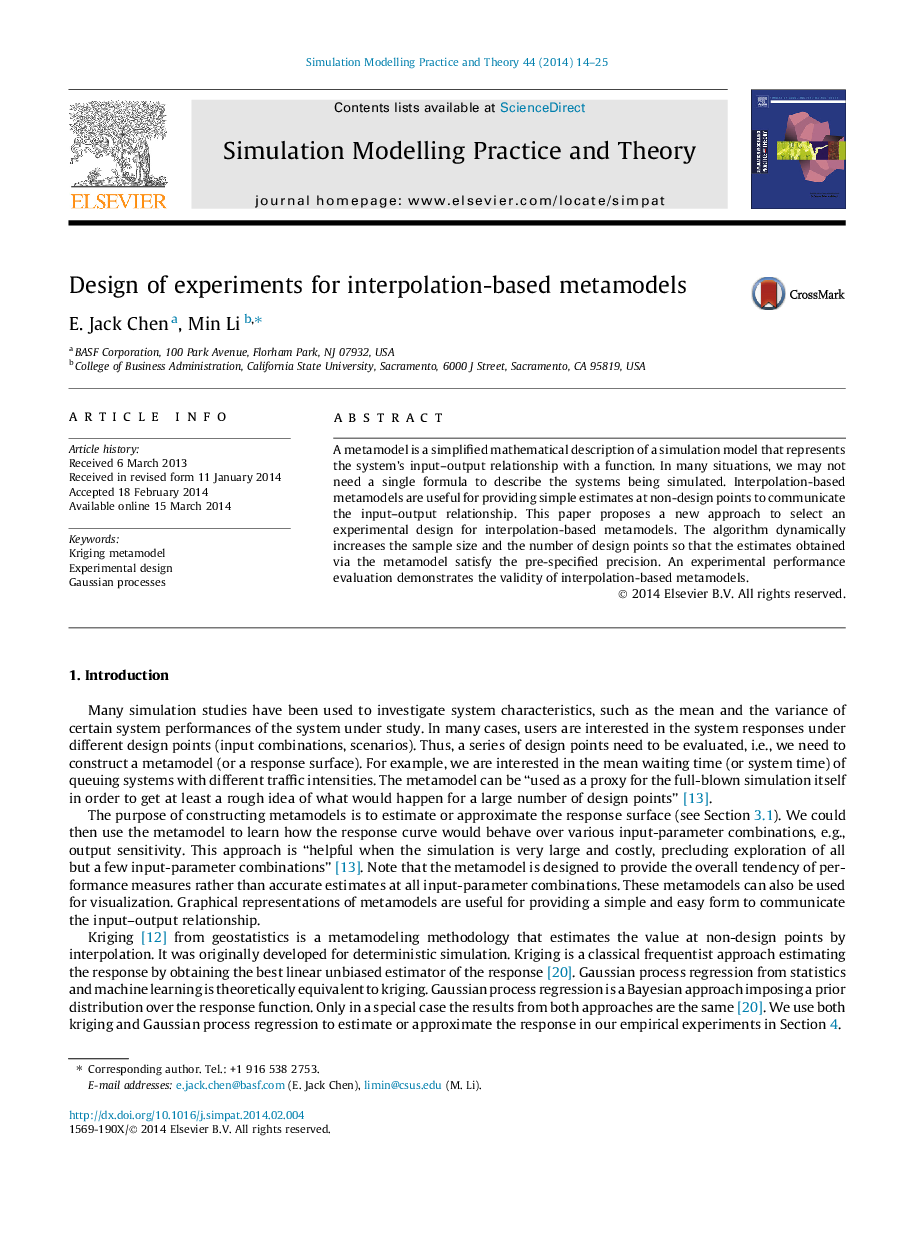| Article ID | Journal | Published Year | Pages | File Type |
|---|---|---|---|---|
| 492178 | Simulation Modelling Practice and Theory | 2014 | 12 Pages |
•We propose a design of experiment for building interpolation-based metamodels.•Determine the required number of design points and the placement of those design points.•Determine the required simulation run length to obtain estimates at the design points.•Compare the performance and traits of three approaches of building interpolation-based metamodels.
A metamodel is a simplified mathematical description of a simulation model that represents the system’s input–output relationship with a function. In many situations, we may not need a single formula to describe the systems being simulated. Interpolation-based metamodels are useful for providing simple estimates at non-design points to communicate the input–output relationship. This paper proposes a new approach to select an experimental design for interpolation-based metamodels. The algorithm dynamically increases the sample size and the number of design points so that the estimates obtained via the metamodel satisfy the pre-specified precision. An experimental performance evaluation demonstrates the validity of interpolation-based metamodels.
